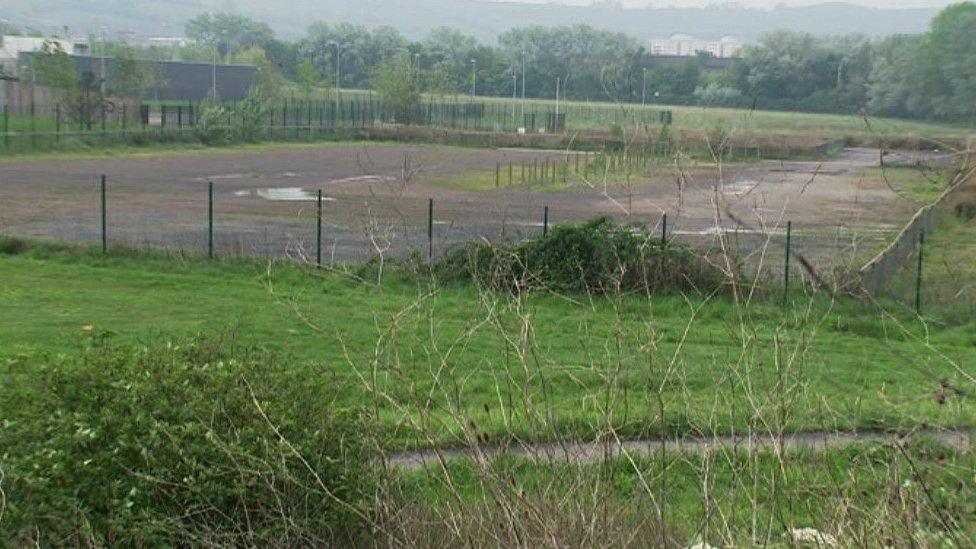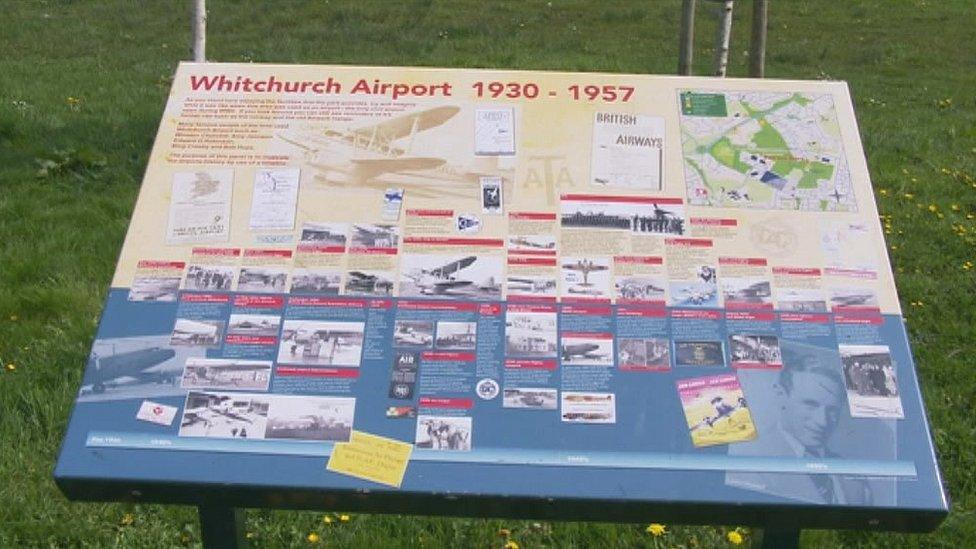Plans for 1,500 Bristol homes at old airport site rejected
- Published

Hengrove Park was the city's main airport between the 1930s and 1950s
Plans to build 1,500 homes on the site of a former airport have been rejected.
The development on Hengrove Park in south Bristol would have been the city's largest development in decades.
The proposal was recommended for approval, external but councillors turned it down at a meeting on Wednesday saying it would be too car dependent and offer too few community facilities.
Bristol City Council said it was disappointed with the decision and was considering its next steps.
Hengrove Park was the city's main airport between the 1930s and 1950s but the 49 hectare (121 acre) site has since become a public park.
The council's plans for the site included 1,500 new homes as well as office accommodation, education space and a new park.

The proposal was recommended for approval but councillors have turned it down
But at a meeting on Wednesday night, councillors rejected the scheme saying the density of homes was too low, the new park was not large enough, the development would be too car dependent and there were not enough community facilities.
Andrew Gamlin, from the Hengrove and Whitchurch Park Neighbourhood planning forum, said it was south Bristol's "biggest park" and "not enough" of it would have been left by the development.
"We know our city needs more housing including ones that are affordable," he said.
"But their [Bristol City Council] proposals give nothing to the local area and take away nearly all of our park which is not good for us, the new residents and South Bristol as a whole."
Paul Smith, cabinet member for housing, said he was "disappointed with the decision" but the authority would be "looking again at the proposal".
"Hengrove Park is being developed over 20 years and the housing was the last piece in the jigsaw," he added.